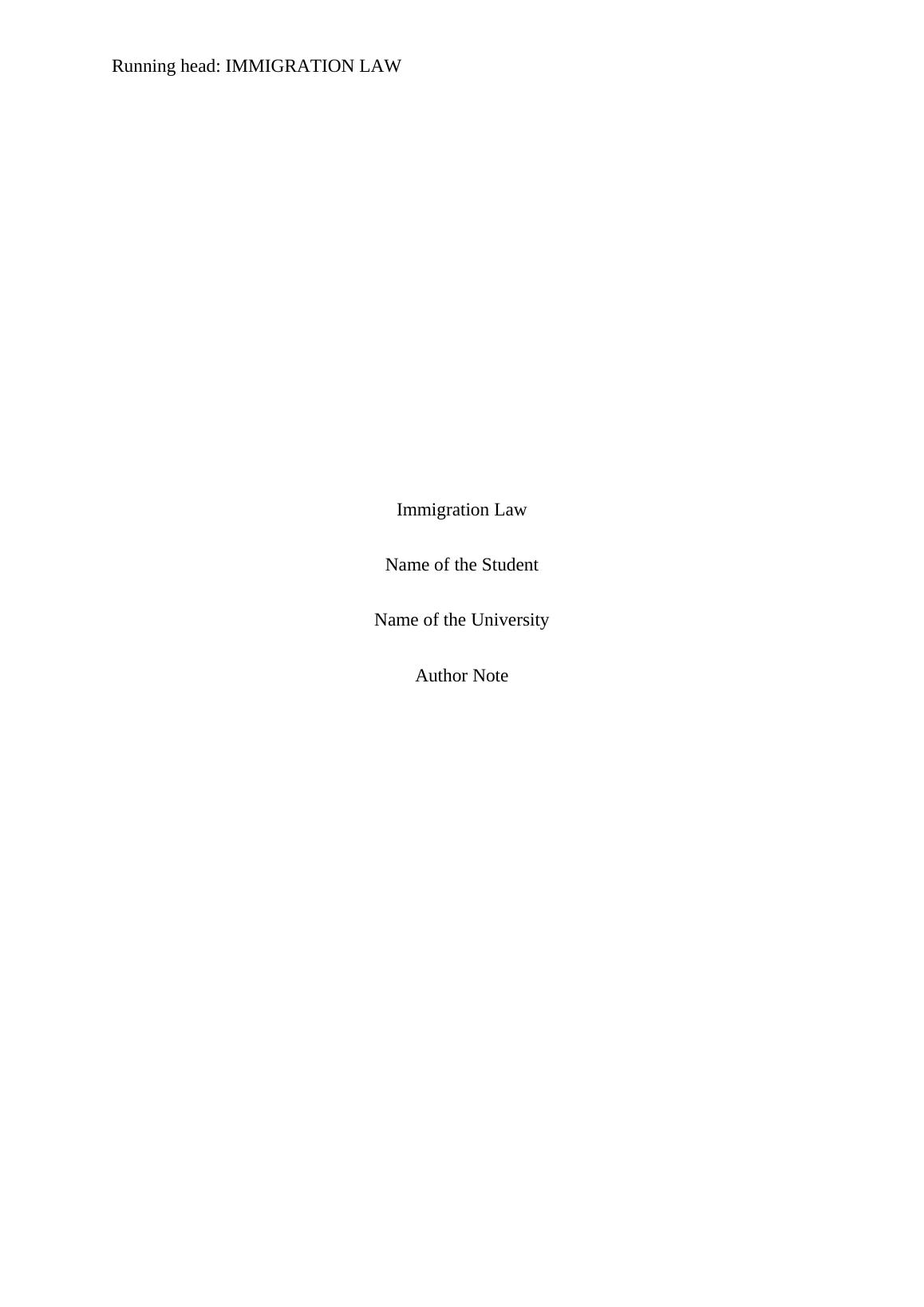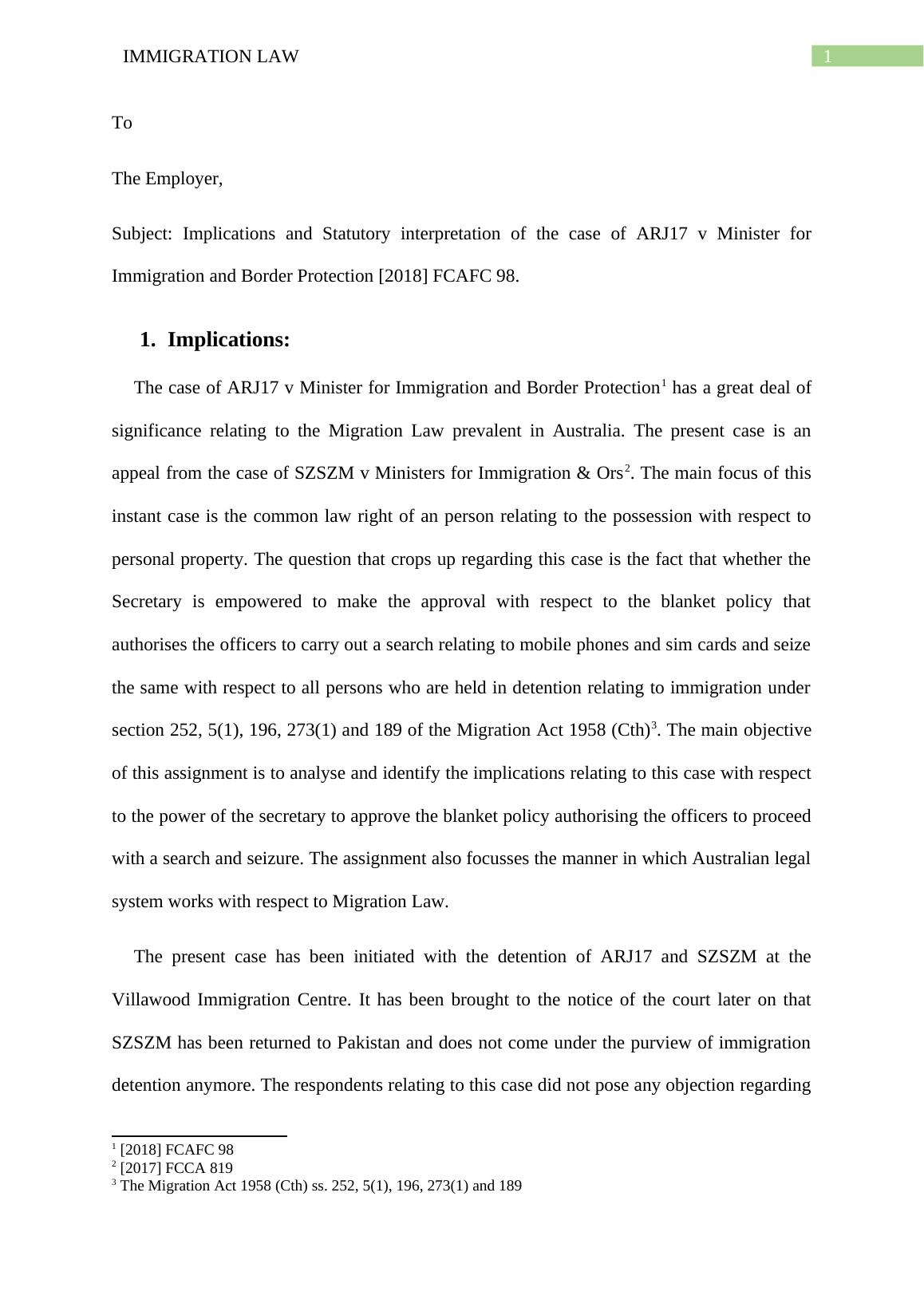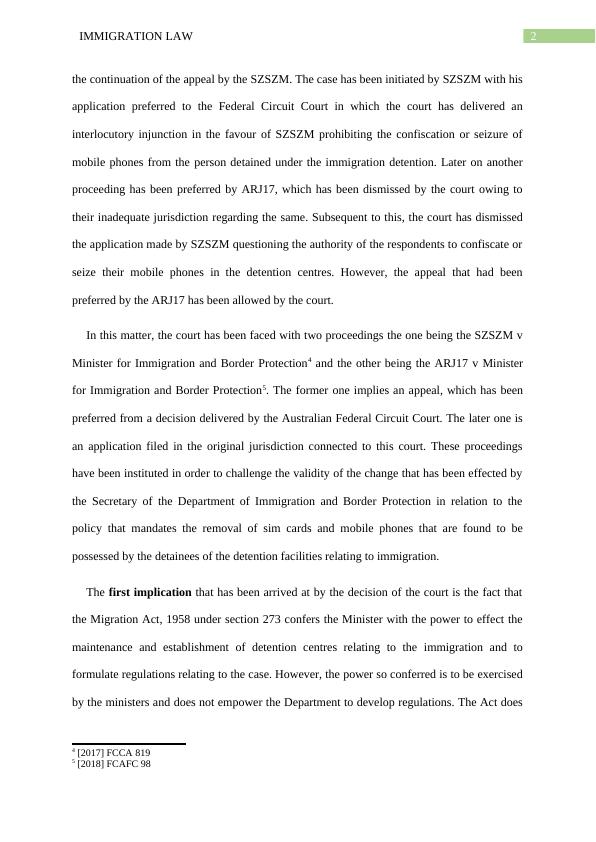Implications and Statutory Interpretation of ARJ17 v Minister for Immigration and Border Protection
7 Pages1711 Words279 Views
Added on 2023-04-20
About This Document
This document analyzes the implications and statutory interpretation of the case of ARJ17 v Minister for Immigration and Border Protection [2018] FCAFC 98. It focuses on the power of the secretary to approve a blanket policy authorizing officers to conduct searches and seizures in relation to immigration detention. The document also discusses the Australian legal system's approach to migration law.
Implications and Statutory Interpretation of ARJ17 v Minister for Immigration and Border Protection
Added on 2023-04-20
ShareRelated Documents
End of preview
Want to access all the pages? Upload your documents or become a member.
Implications and Statutory interpretation of ARJ17 v Minister for Immigration and Border Protection
|7
|1739
|86
Implications and Statutory Interpretation of ARJ17 v Minister for Immigration and Border Protection
|7
|1690
|119
Implications of Beni v Minister for Immigration and Border Protection
|9
|2264
|100
Migration Law
|7
|1580
|42
Migration Law and its Application in Australia: A Case Study of Chen v Minister for Immigration and Border Protection [2013] FCAFC 133
|7
|1714
|256
Implications of Ram v Minister for Immigration and Border Protection [2018] FCA 1068
|6
|1135
|383



